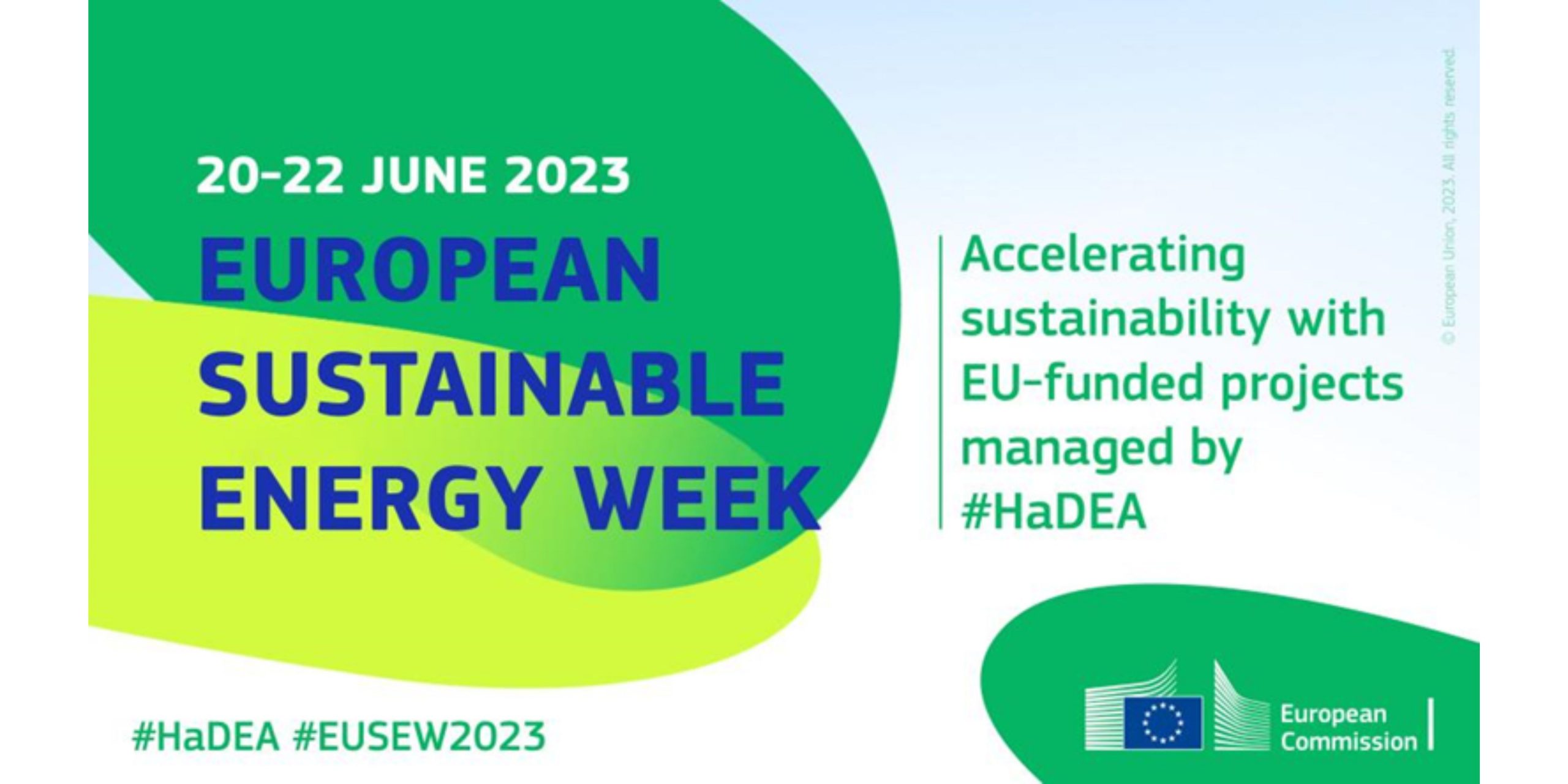The European Sustainable Energy Week (EUSEW) Policy Conference 2023 is taking place in Brussels and online on 20-22 June and is the largest conference in Europe focused on renewable energy and energy efficiency. Under the theme “Accelerating the clean energy transition – towards lower bills and greater skills,” it will cover topics related to energy policies, renewables, efficiency, decarbonisation, and innovative ideas to meet the EU’s energy and climate goals.
Discover some EU-funded projects managed by HaDEA working on achieving circularity, efficiency, and sustainability:
IRISS’s objective is to establish connections and collaboration within the Safe-and-Sustainable-by-Design community. The project aims to integrate safety, climate neutrality, circularity, and functionality throughout the entire life cycle of designing and manufacturing materials, products, and processes. the project is developing roadmaps to guide research and innovation, while addressing policy requirements. It focuses on value chains such as textiles, construction, electronics, energy, automotive and packaging.
RealNano is developing rapid and real-time nano-characterisation tools and methodologies for organic and printed electronics (OE) materials. These will be integrated in roll-to-roll printing and gas transport pilot to production lines. By combining fast, non-destructive characterisation with advanced data management and analysis, RealNano brings digital intelligence to manufacturing, enabling robust quality control and reliable production of nanomaterials and products. This implementation significantly improves characterisation speed, quality, and reliability, reducing manufacturing time and resources required for high-quality OE products.
drOp is developing an integrated renovation methodology to transform social housing districts into inclusive smart neighbourhoods. The project focuses on construction, energy, and digital updates to improve urban spaces, accessibility, and residents’ quality of life, while ensuring connectivity of these neighbourhoods in physical, social, and digital aspects. Emphasis is put on social innovation and local economic development, whilst integrating innovative technologies with a human-centred approach. Its main goal is to explore the potential for growth and development of cultural and creative industries while promoting social cohesion in neighbourhood renewal processes.
ProLight aims to address energy efficiency and the integration of renewables in buildings by finding appropriate social responses. The project focuses on raising awareness, promoting knowledge uptake, and driving behavioural changes. It also seeks to establish a local political framework for these initiatives. Through applied research and theoretical analysis, the project is identifying best practices in energy-efficient building renovation in Greece, Austria, Finland and energy communities in Spain, Italy and Portugal. ProLight aims to leverage civic engagement and citizen science to facilitate the transition towards green and sustainable societies and economies.
Background
Horizon 2020 (H2020) was the EU’s multiannual funding programme between 2014 and 2020. H2020 provided Research and Innovation (R&I) funding for multi-national collaboration projects alongside individual researchers and SMEs via special funding instruments. Horizon 2020 was replaced by the Horizon Europe Programme, which will run until 2027.
Source: European Commission | European Health and Digital Executive Agency (HaDEA) (https://rb.gy/ejbfv)
